Meet the Team
Director
- Ian S. Soriano M.D.
Surgical Faculty
- Tobias Deuse, M.D.
- Jonathan Carter, M.D.
- Adnan Alseidi, M.D., Ed.M
- Melissa H. Coleman, M.D.
- Carlos U. Corvera, M.D.
- David M. Jablons, M.D.
- Kimberly Kirkwood, M.D.
- Johannes R. Kratz, M.D.
- Sandhya Kumar, M.D.
- Matthew Y.C. Lin, M.D.
- Ajay V. Maker M.D. FACS, FSSO
- Andrew M. Posselt, M.D., Ph.D.
- Stanley J. Rogers, M.D.
- Ian S. Soriano M.D.
- Binh N. Trinh, M.D., Ph.D.
Publications
News and Events
Contact Us
Conditions & Procedures
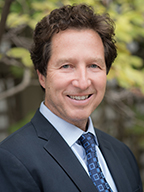
David M. Jablons, M.D., FACS
- Professor of Surgery
- Chief, General Thoracic Surgery
- Nan T. McEvoy Distinguished Professor of Thoracic Surgical Oncology
- Ada Distinguished Professor of Thoracic Oncology
- Program Leader Thoracic Oncology
- Director, Thoracic Oncology Laboratory,
- UCSF Helen Diller Family Comprehensive Cancer Center
Contact Information
Academic Office
500 Parnassus Ave., MUW 405, Box 0118
San Francisco, CA 94143
Tel: 415-514-0262
Email: [email protected]
Assistant: TBD
Thoracic Surgery and Oncology Clinic:
1600 Divisadero St., 4th Floor, Box 1674
San Francisco, CA 94115
Clinic:415-885-3882
Fax: 415-353-7151
500 Parnassus Ave., MUW 405, Box 0118
San Francisco, CA 94143
Tel: 415-514-0262
Email: [email protected]
Assistant: TBD
Thoracic Surgery and Oncology Clinic:
1600 Divisadero St., 4th Floor, Box 1674
San Francisco, CA 94115
Clinic:415-885-3882
Fax: 415-353-7151
Education
- Yale University, B.A., American Literature, 1979
- Albany Medical College of Union University, M.D., 1984
Residencies
- Oak Knoll Naval Hospital, Oakland, CA, General Surgery, 1984-85
- Tufts University/New England Medical Center, General Surgery, 1985-86, 89-91
- Weill Cornell University Medical Center, Cardiothoracic Surgery, 1991-93
Fellowships
- NCI/NIH, Surgery Branch, Surgical Oncology, 1986-89
- Brigham & Women's Hospital, Lung Transplantation, 1992
- New York Hospital/Memorial Sloan Kettering Cancer Center, Thoracic Surgery, 1992-93
Clinical Expertise
- Bronchioloalveolar Carcinoma (BAC)
- Carcinoid Tumors
- Chest Wall Tumors
- Esophageal Cancer
- Esophagectomy
- Lung Metastases
- Lung Transplantation
- Lung Volume Reduction Surgery
- Malignant Mesothelioma
- Mediastinal Masses
- Minimally Invasive Thoracic Surgery
- Non-Small Cell Lung Cancer
- Robotic Thoracic Surgery
- Sarcomas
- Small Cell Lung Cancer
- Thymoma & Thymic Carcinoma
- Tracheal Tumors
- Video-Assisted Thoracoscopic Surgery (VATS)
Research Interests
- Inflammation in lung carcinogenesis
- Study of "systems genetics" in thoracic malignancies
- Isolation of lung cancer stems cells
- Clinical outcomes research
- Discovery of novel therapeutic targets in in thoracic malignancies
- Early Detection and Screening
- Investigation of signal transduction pathways including Wnt, Hedgehog, and Hippo in lung cancer and mesothelioma
- Lung cancer epigenetics and emerging biomarkers
- Next generation sequencing
- Prognostic molecular multi-gene assays in Early-Stage NSCLC
Biography
David M. Jablons M.D., FACS is Professor and Chief of the Section of General Thoracic Surgery at UCSF, and Program Leader of Thoracic Oncology. Dr. Jablons is also Ada Distinguished Professor in Thoracic Oncology and Nan T. McEvoy Distinguished Professor of Thoracic Surgical Oncology. Dr. Jablons is Director of the Thoracic Oncology Lab, one of the largest in the Department of Surgery, with seven principal investigators, an enviable portfolio of NIH grants, and state-of-art-equipment. Utilizing next generation sequencing and leveraging one of the largest thoracic tissue banks in the world, the lab has compiled an enviable record of scientific discovery and invention including a life-saving prognostic assay that informs the decision for providing adjuvant therapy to early-stage lung cancer patients.
Dr. Jablons received his medical degree from Albany Medical College. During medical school, he was awarded an NCI preceptorship allowing him to train under Steven Rosenberg, a world-renowned surgeon and tumor immunologist. This experience kindled Dr. Jablons lifelong interest in translational and precision medicine. Dr. Jablons then completed his general surgery residency at Tufts-New England Medical Center and his thoracic surgery residency at what is now New York Presbyterian-Weill Cornell Medical Center. His mentors included Robert Ginsburg at Memorial Sloan-Kettering and David Sugarbaker at Brigham & Women's Hospital, both world-renown thoracic surgical oncologists. Dr. Jablons also served as a Navy commander while Chief of Thoracic Surgery at the Oakland Naval Hospital. In 1997, he was named Chief of General Thoracic Surgery at UCSF.
Dr. Jablons is a highly accomplished thoracic surgeon, widely sought out by patients in the Bay Area and world-wide. One patient, Bonnie J. Addario, after recovering from an arduous lung cancer surgery, started a foundation bearing her name she co-founded with Dr. Jablons. Today, the Addario Foundation is one of the leading underwriters of lung cancer research. Dr. Jablons has also been a dedicated teacher and outstanding mentor for both for clinical fellows and surgical residents, the latter including Dan Raz and Johannes Kratz, protégés with an enviable and prolific record of publications who helped spearhead development of predictive and prognostic tools for lung cancer treatment in the lab.
Dr. Jablons has been a trailblazer in educational outreach, co-founding the UCSF Thoracic Oncology Conference, an annual symposium that provided expert training for thousands of community surgeons for over a decade. He also was instrumental in establishing the China Clinical Trials Consortium to find more effective treatments for lung cancer, and to ameliorate the epidemic of lung cancer in China. In 2009, he led the effort to bring World Conference on Lung Cancer to San Francisco, the preeminent event in the field, in which he served as co-Chair.
He is a member of numerous professional organizations including the Society of Thoracic Surgeons, the American College of Chest Physicians, the American Association for Cancer Research and the International Association for the Study of Lung Cancer (IASLC). Highly respected by his peers, Dr. Jablons was named to the list of U.S. News "America's Top Doctors," a distinction reserved for the top 1% of physicians in the nation for a given specialty. Dr. Jablons was recently inducted into the American Surgical Society, the nation's most prestigious.
Awards & Honors
Award
Confired By
Date
Research Overview
The Thoracic Oncology Lab focuses on drug target discovery, commercialization of novel therapeutics and development of genomic assays based on predictive and prognostic biomarkers.
Mentoring Overview
Translational Co-Lead: Dr. Jablons is Director of the Thoracic Oncology Lab focusing on molecular therapeutics, molecular diagnostics, systems biology, systems genetics, and bench-to-bedside drug discovery. His lab employs state of the art technology such as next generation sequencing, synthetic chemistry and 3Dcomputer simulation for drug discovery and leverages one of the largest thoracic tissue banks in the world. Training experience: Dr. Jablons has mentored nearly 100 students, post docs, fellows, and junior and midlevel faculty for the past 25 years at UCSF, many of whom have since achieved significant advances in lung cancer research and clinical care.
T32 trainees can avail themselves of numerous ongoing oncology projects in the Thoracic Oncology Laboratory, including pre-basic science and novel target drugs research, actual small molecule by design testing (in vitro and in vivo), clinical trial development and execution.
Research & Funding
Data provided by UCSF Profiles, powered by CTSI
- Inflammation and Lung CarcinogenesisSponsor: NIH/NCISponsor ID: R01CA132566Funding Period:May 2008-Mar 2014Principal Investigator
- The Wnt Pathway in Malignant MesotheliomaSponsor: NIH/NCISponsor ID: R01CA093708Funding Period:Mar 2005-Feb 2010Principal Investigator
Publications
MOST RECENT PUBLICATIONS FROM A TOTAL OF 267
Data provided by UCSF Profiles, powered by CTSI
- Johnson DH, Fehrenbacher L, Novotny WF, Herbst RS, Nemunaitis JJ, Jablons DM, Langer CJ, DeVore RF, Gaudreault J, Damico LA, Holmgren E, Kabbinavar F. Randomized Phase II Trial Comparing Bevacizumab Plus Carboplatin and Paclitaxel With Carboplatin and Paclitaxel Alone in Previously Untreated Locally Advanced or Metastatic Non-Small-Cell Lung Cancer. J Clin Oncol. 2023 May 01; 41(13):2305-2312. View in PubMed
- Woodard GA, Ding V, Cho C, Brand NR, Kratz JR, Jones KD, Jablons DM. Comparative genomics between matched solid and lepidic portions of semi-solid lung adenocarcinomas. Lung Cancer. 2023 06; 180:107211. View in PubMed
- Hysenaj L, Little S, Kulhanek K, Magnen M, Bahl K, Gbenedio OM, Prinz M, Rodriguez L, Andersen C, Rao AA, Shen A, Lone JC, Lupin-Jimenez LC, Bonser LR, Serwas NK, Mick E, Khalid MM, Taha TY, Kumar R, Li JZ, Ding VW, Matsumoto S, Maishan M, Sreekumar B, Simoneau C, Nazarenko I, Tomlinson MG, Khan K, von Gottberg A, Sigal A, Looney MR, Fragiadakis GK, Jablons DM, Langelier CR, Matthay M, Krummel M, Erle DJ, Combes AJ, Sil A, Ott M, Kratz JR, Roose JP. SARS-CoV-2 infection of airway organoids reveals conserved use of Tetraspanin-8 by Ancestral, Delta, and Omicron variants. Stem Cell Reports. 2023 03 14; 18(3):636-653. View in PubMed
- Lee JC, Liu S, Wang Y, Liang Y, Jablons DM. MK256 is a novel CDK8 inhibitor with potent antitumor activity in AML through downregulation of the STAT pathway. Oncotarget. 2022 11 02; 13:1217-1236. View in PubMed
- Kratz JR, Li JZ, Tsui J, Lee JC, Ding VW, Rao AA, Mann MJ, Chan V, Combes AJ, Krummel MF, Jablons DM. Genetic and immunologic features of recurrent stage I lung adenocarcinoma. Sci Rep. 2021 12 08; 11(1):23690. View in PubMed
- View All Publications
In the News
- UCSF Thoracic Oncology Program and Kratz Lab - Richard Barg - May 20, 2019Despite adoption of molecular biomarkers in the management of non-small cell lung cancer (NSCLC), the recently adopted 8th Edition staging utilized only clinicopathologic characteristics, and validated improvement in risk stratification of early-stage disease remains elusive. We therefore evaluated the integration of a clinically-validated molecular prognostic classifier into conventional staging.... Incorporation of a molecular prognostic classifier significantly improved identification of [...]
- Thoracic Oncology Lab - Richard Barg - March 27, 2018A team led by Bhairavi Tolani, Ph.D. and David M. Jablons, M.D. has developed and characterized a potential novel therapeutic for Sonic hedgehog (Shh)-driven cancers, including some lung cancers. Dr. Tolani is an assistant professor and member of the Thoracic Oncology Program, and principal investigator in the Tolani Laboratory. Dr. Jablons is director of the Thoracic Oncology Program and Thoracic Oncology Lab. The researchers reported last October that full-length Shh protein present on the [...]

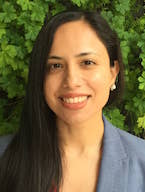
- UCSF Thoracic Oncology Program - Richard Barg - July 28, 2016While traditionally, standard treatment has consisted of surgery and radiation, sarcoma programs at higher volume centers of excellence such as UCSF, have found, with accumulated experience, that adding chemotherapy to surgery and radiation can be quite effective. Experienced Team of Specialists At UCSF Medical Center, sarcoma patients are treated by a highly experienced multidisciplinary team that includes orthopedic and general surgeons; medical and radiation oncologists; pathologists, [...]
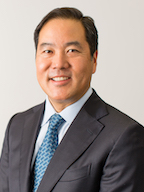
- UCSF Thoracic Oncology Program - Richard Barg - November 07, 2014Building on earlier retrospective validation studies, a team of Thoracic Oncology Program researchers, demonstrated in a small prospective study the clinical utility of a 14-gene expression assay in stratifying risk among non-small cell lung cancer (NSCLC) patients. In a recently published paper in the journal Clinical Lung Cancer, lead author Gavitt Woodard, M.D., a general surgery research resident in the Thoracic Oncology Laboratory, and coauthors David M. Jablons, M.D. (pictured second) [...]

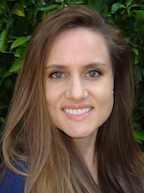
- UCSF Thoracic Oncology Program - November 01, 2012Building on their earlier work reported in The Lancet, two UCSF thoracic surgeons David M. Jablons, M.D. (left) and Michael Mann, M.D. (middle), and Johannes Kratz, M.D. (right) a former surgical resident in the Thoracic Oncology Lab, showed they could accurately stratify patients even with the earliest stage of lung cancer into groups at low-, intermediate- or high-risk of death based solely on the activity of 14 different genes found in their tumors. The group analyzed lung tumors of [...]
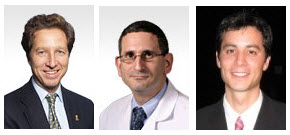
- UCSF Thoracic Oncology Program - January 26, 2012In the two largest clinical studies ever conducted on the molecular genetics of lung cancer, an international team, led by UCSF thoracic surgeons David M. Jablons, M.D. and Michael Mann, M.D., demonstrated that a 14-gene prognostic molecular assay better predicted the likelihood of death in early-stage lung cancer patients versus conventional staging guidelines. Johannes Kratz, M.D., a former surgical resident in the Thoracic Oncology Laboratory, helped spearhead the development of the [...]

- UCSF Thoracic Oncology Program - October 20, 2011On October 16th, the Porsche Race Car Classic was held at at the Quail Lodge in Napa, CA. The event, a collaboration with Porsche AG and Porsche Cars North America, was hosted by the UCSF Thoracic Oncology Program and Bonnie J. Addario Lung Cancer Foundation. Proceeds from the highly successful event benefited the respective hosts. The theme, "Driving Lung Cancer Off the Planet", was underscored in a video produced by the [...]

- UCSF Thoracic Oncology Program - October 18, 2011The UCSF Thoracic Oncology Laboratory recently acquired the 5500 Series SOLiDTM , a next-generation DNA sequencer manufactured by Life Technologies Inc. This state-of-the-art sequencer offers a level of precision previously unattainable, and empowers lab scientists to more deeply probe the underlying molecular biology of myriad cancers: from primary thoracic tumors such as lung cancer, esophageal cancer, and mesothelioma, to metastatic sarcoma, melanoma, colorectal [...]
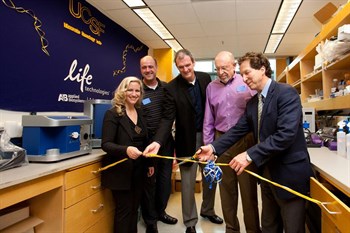
- UCSF Thoracic Oncology Program - September 15, 2011David M. Jablons, M.D., FACS, Professor and Chief of General Thoracic Surgery and Program Leader of the Thoracic Oncology Program, was recently inducted into into the American Surgical Society. The American Surgical Association was founded in 1880 and describes itself as the nation's oldest and most prestigious surgical organization. Among its members are the nation's most prominent surgeons from leading academic medical institutions, many of whom are Department of Surgery Chairs. Membership [...]

- UCSF Thoracic Oncology Program - Richard Barg - July 05, 2011Researchers reported in the New England Journal of Medicine that screening smokers and former smokers with spiral CT scans reduced lung cancer deaths by 20%, reaffirming earlier findings in the NLST screening trial. David M. Jablons, M.D., Professor and Chief of Thoracic Surgery and Program Leader of the Thoracic Oncology Program noted the study's significance: "This is a landmark study and a landmark day for millions of people at risk for lung cancer. This study vindicates numerous [...]

- UCSF Thoracic Oncology Program - December 03, 2009In a lead editorial accompanying interim results from the NELSON lung cancer screening trial, authors James L. Mulshine, M.D. (left) and David M. Jablons, M.D. (right), discuss, in the December 3rd, 2009 New England Journal of Medicine, the diagnostic utility of volume growth as a tool for determining if lung nodules found on CT screening are malignant. "The results suggest that the efficiency of the diagnostic workup for lung cancer can be improved by integrating the measurement of volume [...]


- UCSF Thoracic Oncology Program - July 20, 2009Last October, opera singer Zheng Cao fell during a performance and had no idea why. Later, it turned out she had advanced lung cancer. Now, as a result of treatment with a new type of targeted therapy, her cancer is retreating. Personalized medicine - that is, customizing the treatment to the patient's tumor -is rapidly gaining ground in the treatment of lung cancer.This has given hope to patients like Zheng Cao that their lung cancer can be successfully treated.
- UCSF Thoracic Oncology Program - Richard Barg - June 01, 2009The Bonnie J. and Anthony Addario Endowed Chair in Thoracic Oncology has been created in the Department of Surgery in honor of Thierry Jahan, M.D., an Associate Professor of Medicine at UCSF, who will occupy the Chair as its first recipient. Dr. Jahan is the one of the region's most highly regarded thoracic oncologists and sarcoma specialists, known among patients, their families, and colleagues for his deep sense of empathy and compassion. Dr. Jahan co-founded the multidisciplinary Thoracic [...]
- UCSF Thoracic Oncology Program - May 27, 2009Dr. David Jablons, Chief of the Thoracic Section, is co-chairing the 13th World Conference on Lung Cancer, July 31 - August 4, 2009. The meeting will be held at the Moscone West in San Francisco.

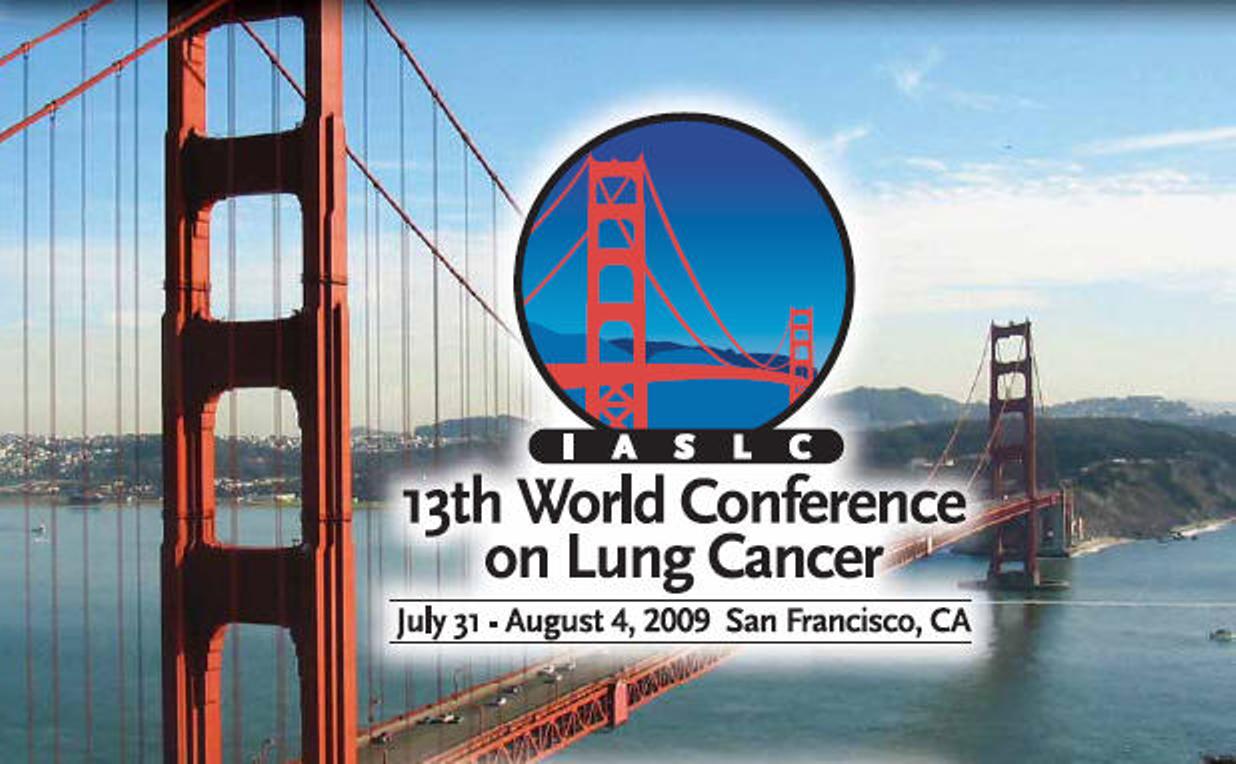
- UCSF Thoracic Oncology Program - December 30, 2007SFGate (San Francisco Chronicle Online) reports on lung cancer survivor Bonnie J. Addario and her inspiration to start an organization, The Bonnie J. Addario Lung Cancer Foundation, to make strides in the fight against lung cancer. Addario received the Jefferson Award for her work. Bonnie J. Addario broke barriers by becoming one of the country's top female oil company executives. Now, she is parlaying her professional prowess into running one of the country's largest lung-cancer [...]

- UCSF Thoracic Oncology Program - December 11, 2006Before an overflow crowd at the UCSF Comprehensive Cancer Center, members of the Thoracic Oncology Program speak about the challenges of lung cancer and the progress that has been made in finding effective treatments and one day a cure.

- UCSF Today, CA - July 27, 2006Adding their own contributions to a rapidly advancing field, UCSF researchers - along with colleagues from Incyte Corporation and the University of Texas Southwestern Medical Center - have described new targets in lung cancer and evaluated a promising new drug candidate that halts growth signals in tumor cells grown in the lab. Their report is featured in the July issue of the scientific journal Cancer Cell.
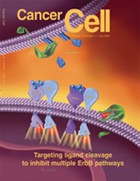
- UCSF Thoracic Oncology Program - Richard Barg - August 14, 2005SFGate.com reports on the collaboration of David M. Jablons, M.D. and Jeff Peterson whose wife Karen and died from mesothelioma, a devastating disease. Dr. David Jablons couldn't save Karen Peterson's life or even extend it. But he could give quality to whatever life she had left. That turned out to be about nine months, long enough for her twin boys to see her waterskiing on Lake Tahoe and boogie-boarding in Oceanside and laughing more than coughing. Jablons, chief cardiothoracic surgeon [...]
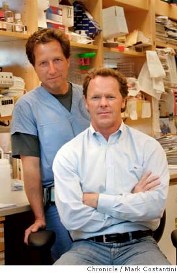
- UCSF Thoracic Oncology Program - April 23, 2004SFGate.com reports on the the journey of Mike Wooldridge after getting a devastating diagnosis and being turned away for surgery by M.D. Anderson, and being told it was incurable, only to get treatment at UCSF that enabled him to run in a marathon not long after that. Running a marathon without a third of your right lung might seem impossible, but for Mike Wooldridge it's just another day on the road. Diagnosed with a fist-sized tumor in his right lung a year ago, the Pleasant Hill Web [...]

Patient Stories
- Mark Carpenter
Preparing for a Triathlon after Outrunning Espophageal Cancer
UCSF Thoracic Oncology Program - by Mark Carpenter - September 01, 2013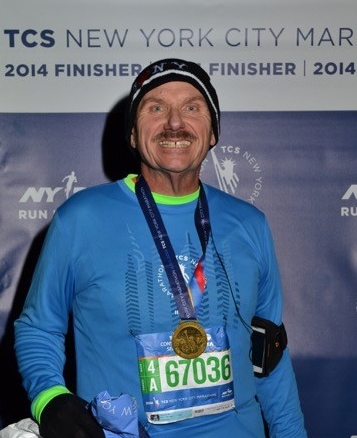 My name is Mark Carpenter, and I owe my life to the doctors and nurses at UCSF. My story began in January 2010, when it became difficult to swallow. A few weeks later my general practitioner delivered the news that changed my life forever: I had esophageal cancer. I went first to a surgeon in my local community who was unwilling to operate given the advanced stage of the tumor. Along with my wife, I decided to search for a second opinion. We were referred to UCSF where we met with Dr. David Jablons, chief of Thoracic Surgery and program leader of the Thoracic Oncology Program, who[...]
My name is Mark Carpenter, and I owe my life to the doctors and nurses at UCSF. My story began in January 2010, when it became difficult to swallow. A few weeks later my general practitioner delivered the news that changed my life forever: I had esophageal cancer. I went first to a surgeon in my local community who was unwilling to operate given the advanced stage of the tumor. Along with my wife, I decided to search for a second opinion. We were referred to UCSF where we met with Dr. David Jablons, chief of Thoracic Surgery and program leader of the Thoracic Oncology Program, who[...] - Fran Cruse
Surgery Gives Grandmother "A Cherished Gift Every Day"
UCSF Thoracic Oncology Program - by Maria Teresa Cruse - September 01, 2013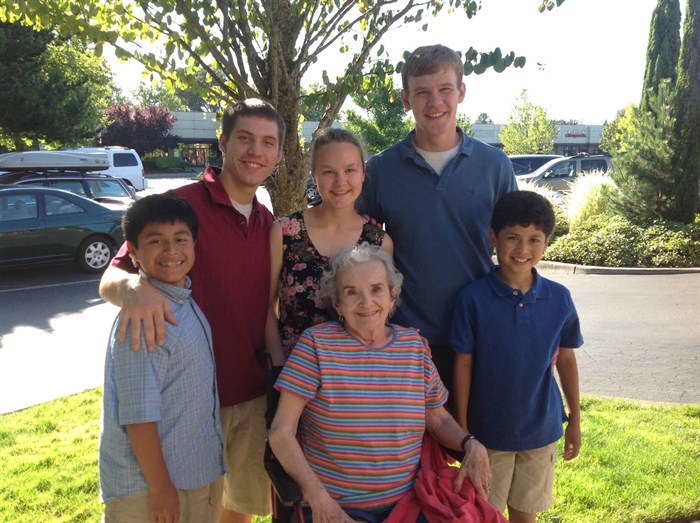 In 2002, my mother, Fran Cruse, was diagnosed with Stage II lung cancer. In the following months, my three siblings and I took her to surgeons and oncologists near her home in Carson City, Nevada. Because the tumor was extremely large and pressing against her aorta, the doctors told us there was nothing they could do – that she should just enjoy the time she had left with her family. We were devastated. At the time, my mother was a vigorous 60-year-old woman with eight grandchildren. Although she had a serious illness, she wanted to do all she could to fight the cancer. We scoured the[...]Story Categories: Non-Small Cell Lung Cancer
In 2002, my mother, Fran Cruse, was diagnosed with Stage II lung cancer. In the following months, my three siblings and I took her to surgeons and oncologists near her home in Carson City, Nevada. Because the tumor was extremely large and pressing against her aorta, the doctors told us there was nothing they could do – that she should just enjoy the time she had left with her family. We were devastated. At the time, my mother was a vigorous 60-year-old woman with eight grandchildren. Although she had a serious illness, she wanted to do all she could to fight the cancer. We scoured the[...]Story Categories: Non-Small Cell Lung Cancer